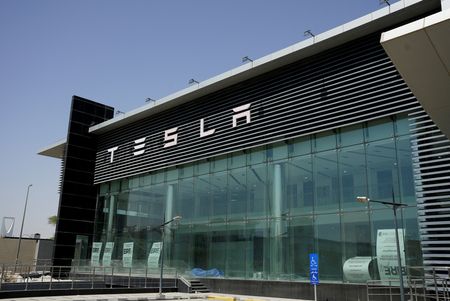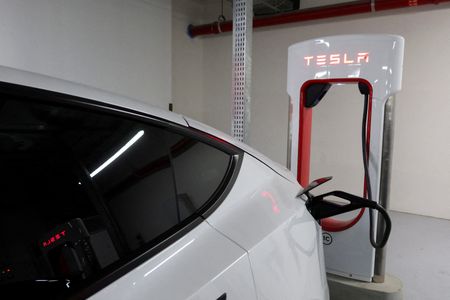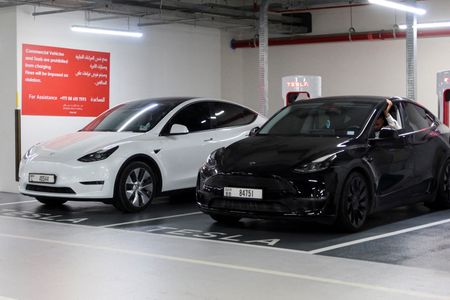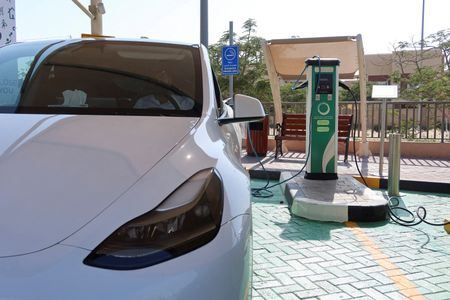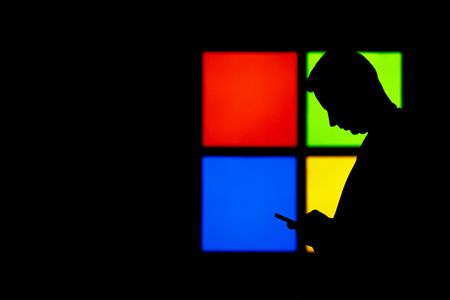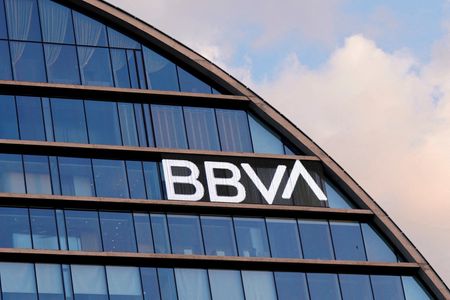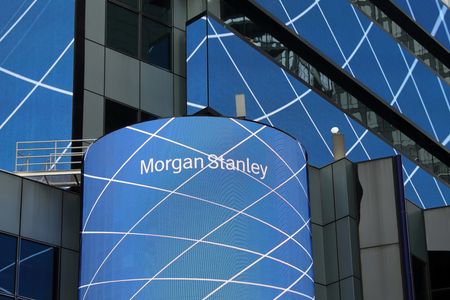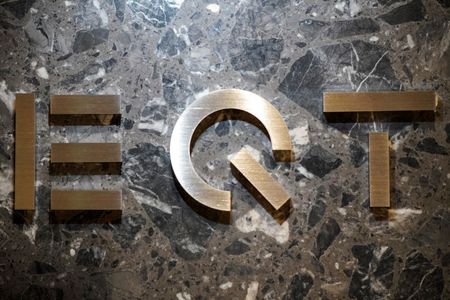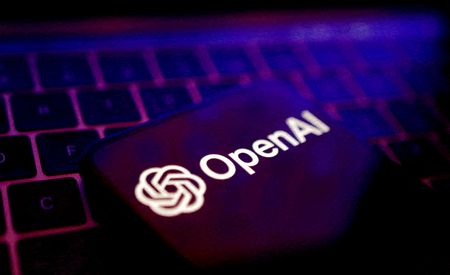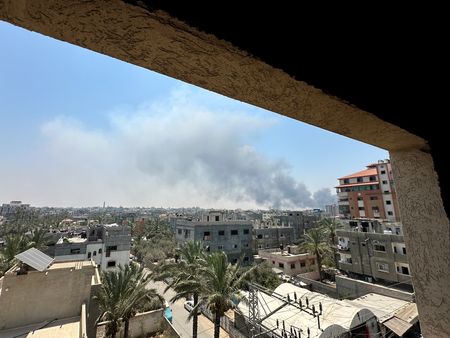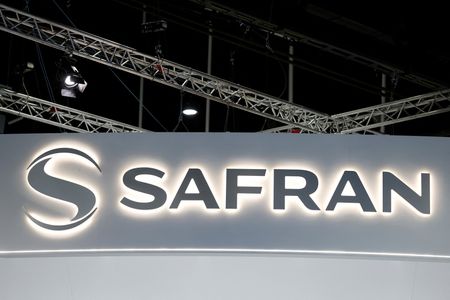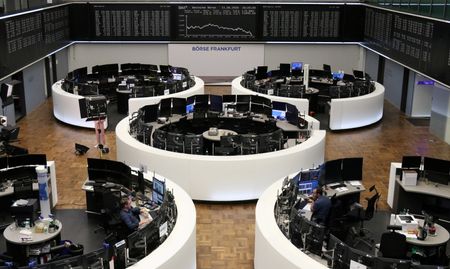By Pesha Magid
RIYADH (Reuters) – Tesla launched operations in Saudi Arabia on Thursday, a sign that Chief Executive Elon Musk has patched up relations with the kingdom and that the oil capital was moving forward with an ambitious electric-vehicle policy.
A Tesla Cybertruck and a redesigned Model Y sedan dominated a plaza dotted with palm trees, as the EV maker officially opened for business. A small crowd tried out the vehicles as a massive outdoor video screen showed a Cybertruck plowing through a dusky desert, leaving behind plumes of sand.
Tesla needs new customers: globally, it posted a 13% drop in first-quarter sales, its weakest performance in nearly three years, driven by a backlash against Musk’s role in the Trump administration, rising competition and an aging product lineup, beyond the refreshed Model Y.
The kingdom, a major investor in Tesla rival Lucid, aims for 30% EV adoption five years from now, up from about 1% last year. Musk engaged in a high-profile feud with the kingdom’s sovereign wealth fund over a potential investment nearly a decade ago, but relations between Riyadh and Musk have improved since he took a high-profile role in U.S. President Donald Trump’s election campaign and administration. Trump is set to visit Saudi Arabia in the coming weeks in his first foreign trip.
Local Tesla executives at the launch described plans to allow online ordering of vehicles, open pop-up stores in malls and to build Supercharger stations and service centers, but Musk did not show up in person or by video. “I’m honestly very disappointed I cannot see him,” said fan Mohammed Usama, who said he was “in love” with the Cybertruck. “I was very close to the stage, but unfortunately he didn’t come.”
Saudi has a long way to go to hit its EV goals. The country’s main east-west highway does not have a single charging station in the 900-kilometer (559 mile) stretch linking the financial and religious cities of Riyadh and Mecca. Saudi Arabia in 2024 had just 101 EV charging stations, compared with 261 in neighboring United Arab Emirates, a country with a third the population, data from Statista based on Electromaps showed. Tesla plans to put its first charging stations in three cities.
Rival EV brands like China’s BYD and Zeekr, along with the Saudi Public Investment Fund-backed Lucid, already have Saudi beachheads.
The feud between Musk and the governor of the kingdom’s sovereign wealth fund began when Musk tweeted in 2018 that he had “funding secured” to take Tesla private after a meeting with the fund. That led to a lawsuit from investors when a bid failed to materialize. “You are throwing me under the bus,” Musk wrote in a text to fund chief Yasir Al-Rumayyan, according to court documents.
Shortly after the U.S. presidential election, Trump, Rumayyan, and Musk were all pictured together sitting in ringside seats at an Ultimate Fighting Championship event in an early signal that relations had healed.
(Reporting by Pesha Magid in Riyadh; Editing by Peter Henderson and Matthew Lewis)

